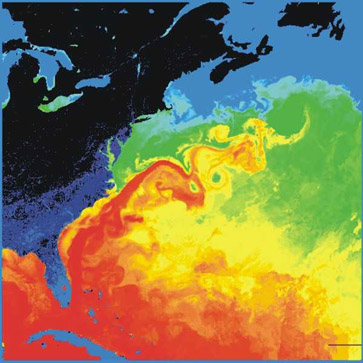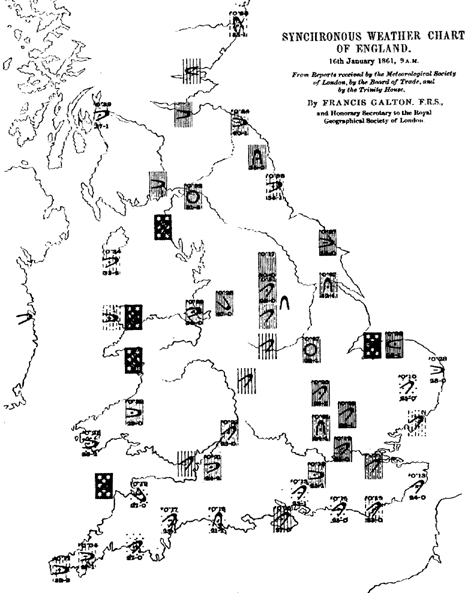

Abrupt climate change: North Atlantic could cool sooner and faster than predicted
Residents of north-west Europe currently enjoy a climate that is around 5°C warmer than other regions of the same latitude thanks to the Gulf Stream which carries warmth from Florida to European shores.
However, new research in Nature Communications has found that there is nearly a 50:50 chance that a key area of the North Atlantic will suddenly cool, within the space of a decade, before the end of this century – much sooner and faster than previously expected. Until now, it was expected to occur at least several hundreds of years in the future.
Climatologists from the University of Southampton, UK and Environments et Paléoenvironnements Océaniques et Continentaux laboratory (CNRS/University of Bordeaux, France) developed an algorithm to investigate the risk of abrupt climate change by re-analysing the 40 climate models.
Current climate models foresee a slowing of the meridional overturning circulation - or the thermohaline circulation - which is the phenomenon driving the Gulf Stream. If it were to slow down, the disruption to the climate system would be severe and unprecedented. In winter, surface water temperatures tumble, increasing water density and causing it to sink, thus displacing the deeper water which brings heat back to the surface, preventing the formation of ice caps.
Oceanographers re-examined the 40 projections by focusing on a critical spot in the north-west North Atlantic: the Labrador Sea, the location of a convection system that feeds into the ocean-wide thermohaline circulation. A total shutdown of convection, leading to abrupt cooling of the Labrador Sea by 2 - 3°C in less than 10 years was predicted by several of the models, particularly those more effective at simulating ocean stratification - a critical parameter triggering the winter convection. This occurrence would ultimately lower North Atlantic coastal temperatures.
Eventually, the researchers hope to test these projections against real data from instruments being deployed to analyse ocean currents, but it does suggest that current, broader ensemble predictions may underestimate future abrupt cooling.




